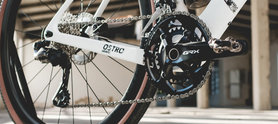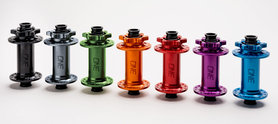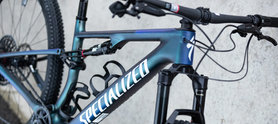Undergarments
OUR Undergarments RECOMMANDATIONS
Our Suggestions
Why functional undergarments? There are two main reasons for this, which apply equally to bike undershirts and underwear: moisture wicking and breathability.
Moisture Wicking & Breathability: The Most Important Properties of Bike Underwear
Good bike underwear is made of functional materials. Materials are able to absorb a lot of moisture and release it quickly. This is the basis for the onion layering system and is commonly referred to as a "base layer". Common materials used for this purpose include polyamide (nylon), polyester, polypropylene and the natural material Merino wool. Clever material blends are also often used. Manufacturers of bike undergarments include established outdoor brands such as Patagonia, GORE Wear and VAUDE, as well as specialists for cycling underwear, e.g. ASSOS. E.g. ASSOS, Endura, Craft, GripGrab or 7Mesh. Cotton is not optimal because it absorbs moisture but dries extremely slowly. This creates a vapour barrier that prevents any further breathability and causes you to stew in your own juices. In addition, moist skin chafes much more easily.
Functional underwear, on the other hand, stays dry even during exertion, which is more comfortable because you don't cool down or overheat. This ensures you remain comfortable at all times. You benefit from this not only during sports, but also on the way to work or university, because you won't arrive soaking wet. One thing cycling underwear cannot and should not do, however, is prevent sweat. Perspiration is an important bodily function to regulate your temperature. You don't want to pant like a dog, do you?
Bike Underwear Must Fit Properly
A close fit that doesn't constrict is crucial for the function of your bike underwear. It supports moisture wicking and avoids chafing.
Up Top: Bike Undershirts for Every Gender
Bike undergarments are worn close to the body. This is why cuts designed for women, men and others make sense. However, the basic requirements remain the same: the fit and level of moisture-wicking must be right. Three basic forms are available for all sexes:
- tank top (also called sleeveless)
- short-sleeved shirt (also T-shirt or shortsleeve or S/S)
- long-sleeved shirt (also longsleeve or L/S)
Longsleeves often have slightly longer sleeves to protect the back of the hand even in an outstretched seat position. What most shirts and tops for cycling have in common is that the back is significantly longer, which protects the kidneys and lower back when you’re in a typical biking position and won’t slip out of pants or shorts.
Down Below: Bike Underwear for Men and Women
Cycling underwear has another special feature: it comes in different versions with or without seat padding. If you ride long distances and/or in a sporty manner, you can benefit greatly from a chamois that offers just the right amount of padding and neither slips nor rubs. Gravity mountain bikers and short-distance bikers tend to do without a chamois, which can also be visibly bulky. However, they also ride better and more comfortably with cycling underwear made of functional material.
Especially in the road bike, cross-country mountain bike and long-distance sector, a special variant of cycling shorts is popular, the so-called bib shorts. The straps won’t slip and ensure that your bike shorts fit perfectly. Bib shorts, like all other cycling undergarments, are worn directly against the skin without another pair of underwear underneath. In case of any discomfort, chamois cream can provide relief.
Since everyone’s anatomy sometimes differs greatly, there is also gender-specific cycling underwear.
Other Features of Bike Underwear
In addition to the basics in terms of cut and material, there are a number of features so that cycling underwear works even better to suit your discipline:
- Open Weave/Mesh: Modern mesh fabrics feature an open surface that provides excellent heat and moisture management, which is particularly appealing to athletes.
- Body Mapping: This term describes the combination of different materials or processing techniques in a garment. For example, highly-breathable mesh under the armpits and on the back, a more wind-resistant material on the chest and sturdier fabrics on the shoulders.
- Stretch Materials: Combines a tight and wrinkle-free fit with plenty of movement. Examples include elastane and others.
- Flatlock, Seamless, etc.: This is about seams. These are either made particularly flat at exposed points or omitted altogether. The goal is the same: less friction and more even pressure distribution.
- Rubberization: In many products, e.g. leg and arm cuffs or hems are lightly brushed, rubberised or have silicone strips to prevent garments from slipping.
- Silver Ions, etc.: Many manufacturers equip their synthetic fibre underwear with odour-inhibiting features. Merino wool underwear is naturally odour-resistant and therefore stays fresh for longer without special treatment. It’s ideal for commuters, long-haul rides or bikepacking adventures.
Thermal Bike Underwear for Autumn and Winter
In cold and wet weather, you may want to store body heat for a long time, which is where thermal underwear comes in. There are several options when it comes to this:
- Windstopper, etc.: Here, windproof material is used on the wind-exposed front area or throughout the entire garment. The warm layer of air between the body and the base layer is thus protected. Tip: Do not choose a windstopper base layer that is too tight.
- Material: Merino wool also works in high summer, but is especially popular in cold weather because of its natural properties. It has good heat retention and keeps your body warm even when damp. This also applies to Primaloft and comparable synthetic fibre insulation, which is used in particularly warm thermal underwear.
- Surface Structure and Weave: Terry loops, fleece and comparable surface structures provide a stable air cushion around the body that keeps you warm.



























































